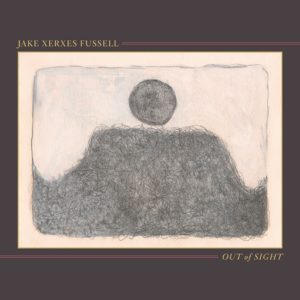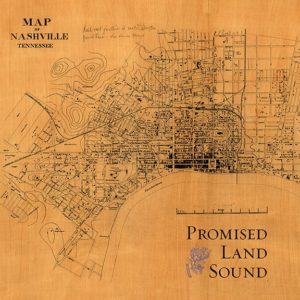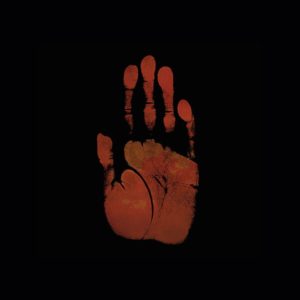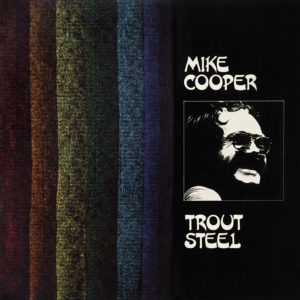A sublime meditation on mortality and memory, ghosts and grief, Angels of Death casts a series of spells against forgetting and finality, in the form of mystic-minimalist country-soul torch songs about writing, time travel, and spectral visitations. Castle wrote and recorded this breathtaking follow-up to the acclaimed Pink City (2014) in a 19th century church near the shores of Lake Erie, where her family also lived and experienced a constellation of losses that inhabit these bruised musings.
Highlights
- Deluxe 140g virgin vinyl LP features heavy-duty high-gloss board jacket, color inner sleeve with lyrics, color LP labels, and high-res Bandcamp download code.
- CD edition features high-gloss gatefold jacket with LP replica artwork.
- RIYL: The Weather Station, Itasca, Steve Gunn, Aldous Harding, Joan Shelley, Cass McCombs,U.S. Girls, Meg Baird, Bill Callahan, Julie Byrne, Nadia Reid, Joanna Newsom, Angel Olsen, Mary Margaret O’Hara, Linda Perhacs, Judee Sill, Sibylle Baier, Vashti Bunyan, Kath Bloom, Leonard Cohen, Joni Mitchell, Felt.
- Artist page/tour dates/links
Physical format music purchases from the PoB webstore and Bandcamp include digital downloads when feasible. Some, but not all, pre-2023 vinyl pressings also include a download coupon. For digital preorders and high-resolution digital downloads, please visit our Bandcamp page.
Tracklist
A1. “Tomorrow’s Mourning”
A2. “Crying Shame”
A3. “Texas”
A4. “Angels of Death”
A5. “‘We Always Change’ Reprise Pt. 1”
B1. “Rose Waterfalls”
B2. “Grim Reaper”
B3. “Stars of Milk”
B4. “Tonight the Evening”
B5. “‘We Always Change’ Reprise Pt. 2”
Catalog Number/Release Date
PoB-041 / May 18, 2018
Purchase from PoB above or support via
- Bandcamp (LP/CD/digital)
- Other Options(LP/CD/DL/stream)
- Local Record Stores
More from Jennifer Castle
| Weight | N/A |
|---|---|
| FORMAT |
Album Narrative
- Photo by Cash Honey 2018.
- Photo by Cash Honey 2018.
- Photo by Cash Honey 2018.
- Photo by Cash Honey 2018.
The fictional concept of death rears its head in so many of my songs, always on the periphery, or as a side note, or a reminder, a punchline or the bottom line, always sniffing around like a death dog. For once I wanted to try to put it in my center vision. In order to talk about death, I armed myself with the only antidote I know: writing. Is this a record about death or a record about writing? Hard to tell in the end. I began to think of poetry as time travel. I tried to write messages to the future.
– Jennifer Castle
Among the surviving songs by ancient Greek poet Sappho (630–570 BCE), sometimes known to her contemporaries as the “Tenth Muse,” is a quiet, confident prayer for immortality through writing: “The Muses have filled my life/With delight/And when I die I shall not be forgotten.” The alternative is this terrible curse of oblivion: “When you lie dead, no one will remember you/For you have no share in the Muses’ roses.” Though often portrayed today as heavy-lidded, passive conduits of creativity, the Muses of Greek mythology were much stranger and more sinister creatures than their iterations in contemporary culture. In his Metamorphoses, Ovid depicts them as a species of weird angels, airborne and arboreal: “The Muse was speaking: wings sounded in the air, and voices came out of the high branches.”
On Jennifer Castle’s new album Angels of Death, her third full-length record under her given name (previous releases were credited to Castlemusic), the Ontario songwriter summons a kindred classical vision of the Muses as domestic familiars intimately in league with death. In “Rose Waterfalls,” which boasts a melody that cascades like its title, muses stage a home invasion, a pestilence of inspiration. “No one said that poetry was easy,” Castle allows at the outset,
but muses leave me while i make my coffee
and muses don’t come watching in the bath
and muses if you ever catch me in the news
you can kill me muses any way you choose
A sublime meditation on mortality and memory, ghosts and grief, Angels of Death casts a series of spells against forgetting and finality, in the form of mystic-minimalist country-soul torch songs about writing, time travel, and spectral visitations. Castle wrote and recorded this breathtaking follow-up to the acclaimed Pink City (2014) in a 19th century church near the shores of Lake Erie, where her family also lived and experienced a constellation of losses, struggles, and hard-won growth. The residue of those changes inhabits these bruised musings. We have, all of us, survived these types of ordinary interpersonal traumas, but they are no less devastating or meaningful for their universality. (As Joan Didion writes in her 2005 treatise on grief, The Year of Magical Thinking, “Life changes in the instant. The ordinary instant.”)
The title track finds Castle wrestling, like Jacob, with the radiant angels of death “hanging in the room,” while she attempts to navigate, or write, her way through the “loopholes and catacombs of time”—the line is borrowed, with permission, from fellow Canadian poet Al Purdy—like Ariadne in the labyrinth, with her spool of silver thread. The idea, Castle explains, is that “we might resurface, in various forms, to join forces with the living, and that the living can in turn conjure the energies of the dead.” “Stars of Milk” poses the question of how to discern such otherworldly transmissions:
can you hear me calling
from underneath the fountain
does my voice sound like nothing
more than water pushing upwards
Real-life muses haunt Angels of Death as well. In addition to Al Purdy, whose verse appears as a result of an invitation from Jason Collett of Broken Social Scene to incorporate a Purdy poem, Castle cites Cuban American artist Ana Mendieta, Didion’s The Year of Magical Thinking, and Spanish artist Susana Salinas (the addressee of “Stars of Milk”) among those whose work served as catalysts. Castle speaks of manifesting phenomena and people by writing them, or singing them, into existence. That is, I suppose, one definition of a spell—“the majesty of turning/flesh into the storyline,” as she sings in “Grim Reaper,” or vice versa.
Magical and psychic manifestations aside, the album is grounded by workaday circumstances and poignant personal details, like this miniature stanza-story from the gently galloping, melodically intoxicating “Texas”:
i go down to texas
to kiss my grandmother goodbye
she forgets things
but when i look her in the eye
i see my father
and he’s been gone so very long
in the name of time travel
help him to hear my little song
The Grim Reaper harvests, and the benevolent Angels remain to comfort with their small gifts of grief, which magnify beauty and pain alike. “And they whip me/with the belt of Orion,” Jennifer jokes, “when they find out/I’m not a young American.” The thesis of the album is the brittle, beautiful piano ballad “Tomorrow’s Mourning,” a skeletal song about “passing through/the ever omnipresent song” of death that surrounds us, and “singing along/’cause there’s no way out.” “You’re either the one gone, or death’s witness,” Castle observes. She wept while recording it, the first time that had ever happened, she says.
The arrangements of these remarkable recordings hang in the air like the angels they describe, hovering aloft on pedal steel, strings, and keys. Sonically, songs like “Crying Shame” and “Grim Reaper,” in their disciplined atomization of chords and carefully chosen words, are refined to the point of being barely there. Space is sculpted in silence, and the songs resemble gossamer webs, visible only at an angle, sunlight refracting through dew. Castle’s voice is an instrument of exquisite ethereality and expressive linearity, limpid and narrow and pure as a mountain brook.
Over the course of her fruitful career in music, she has collaborated with U.S. Girls, Owen Pallett, Doug Paisley, Fucked Up, and Kath Bloom; she has toured with Destroyer, Steve Gunn, Cass McCombs, Kurt Vile, Iron & Wine, and M. Ward, among others. Daniel Romano has even recorded a song called “Jennifer Castle.” But never before has she sounded so certain of her uncertainty, or so possessed by the urgency of her explorations.
Angels of Death was produced by Castle and longtime collaborator Jeff McMurrich. Although augmented at subsequent Toronto sessions by other notable players such as Victoria Cheong and Isla Craig on backing vocals and Stew Crookes on pedal steel, the core band comprised Paul Mortimer on lead guitar, David Clarke on acoustic guitar, Jonathan Adjemian on organ/piano, Mike Smith on bass (he also wrote the string arrangements), Robbie Gordon on drums, and Castle on guitar and vocals. Much of it, and most of Jennifer’s vocal tracks, were recorded live in the church over one cold weekend; “the moon,” Castle reflects, “was a member of the band.”
Each side of the LP ends with a reprise of a 2008 song entitled “We Always Change,” a bit of wordplay, since “reprise” means a repetition or iteration. And so the record ends with metamorphoses—sequential transformations into a tree, the sea, a flame—much as it began with an enveloping presence neither fog, nor mist, nor cloud (“but you get the gist.”) Indeed, we always change. There’s no way out. We’re just passing through the ever omnipresent song. So let us, each of us, take our share in the Muses’ roses before we depart. Sappho knows.
Videos and Streaming
Acknowledgments
#1, Real Life Rock Top Ten. You might bet against the notion of anyone other than Lana Del Rey calling an album Angels of Death and not drowning in her own pretentiousness. With the Toronto singer Castle, you’d lose. The first song is last night’s dream you can’t remember; Castle remembers it for you, and as the songs roll on she stays on that path. The action is all in the interstices between the melody and the cadence, the voice and the instrumentation. The melody seems called up by the cadence, the instrumentation feels like a reflection of the voice, and you can find yourself listening for those tiny lifts, the suspensions in the songs replacing the songs themselves.
– Greil Marcus, Village Voice
She’s never been more potent than on her new album, Angels of Death, a work that may well stand the test of time as a masterpiece. Like some sacred text, it is a scriptural paean to the loved ones lost and the indelible mark they’ve left on our lives. It mourns and it celebrates, embracing the transformation of time, eternal constellation of growth and decay and growth again. These deeply difficult and existential musings find Castle at the height of her artistic powers, both sonically and lyrically.
– Chad Depasquale, Aquarium Drunkard
No hyperbole, Jennifer Castle is a spectacular songwriter. Castle’s singing carries the joy of life. It’s what helps keep the artist perched on the vanguard of celestial country and fantastical folk, a title she affirms once again with her fifth album Angels of Death.
– The FADER
8/10. Fine-boned, effortless. Despite its gloomily foreboding title, Castle’s new country-soul/folk set is light, lean, and possesses a dulcet luminosity. With an empathetic band featuring strings, keys, and pedal steel, Castle alternately pulls the songs into focus with her clear, honeyed voice and lets it drift free inside them.
– Sharon O’Connell, Uncut
Angels of Death exhumes death’s many forms with tenderness, narrating the often inarticulate core of grief—from pain and emptiness to the memories and hovering apparitions. Themes of loss, confusion, and frustration meet burning country and gospel-inspired anthems and sparse, piano-driven ballads. Throughout, she effortlessly conveys the conflicting emotions that accompany loss.
– Erin Osmon, Pitchfork
Jennifer Castle’s Angels of Death is an ethereal, deeply poetic take on the subject—nimble, sure-footed and beautifully written and performed… Amid the ghosts, Castle’s sublime songs, crystalline voice and the integrity of her delivery carry Angels of Death to the brighter side of life.
– Pablo Gorondi, Associated Press
4/5. The Canadian’s third finds her feeling mortal: drawing on poetry, reminiscence, visions, ghosts, and the corporeal return to the earth, for country-soul songs full of warmth and comfort.
– MOJO
Castle channels the lunar radiance of Emmylou Harris and the heartfelt barroom blues of Jimmie Dale Gilmore, quietly gleaming with a rustic beauty and a deep, patient understanding of the mystic. This record is a genuine masterpiece.
– Aquarium Drunkard (“2018 Year In Review”)
9/10. Angels of Death is a stark contemplation of death as experienced by the living, but it’s also a meditation on writing, legacy and the defiance tangled up in the “majesty of turning / flesh into the storyline,” as Castle sings on hushed, fingerpicked “Grim Reaper.” it is surprising that this deep, traversing album is only 35 minutes long.
– Sarah Greene, Exclaim!
A gorgeous collection of country-soul gold. Castle’s songs are vibrant and bountiful landscapes, and even in their quietest, darkest moments, they thrum and glow. As a songwriter, Castle has a stunning capacity for crafting lines rich with nuance, humour and devastating beauty. On Angels of Death, Castle has coaxed from her bones a love letter to the poets, and invited her audience inside the creative process, which, like death, is its own impossible negotiation between utterly natural and wildly unfathomable. This is a record of jolts and gentle hands, a space in which to find answers in every verse and questions in the silences. It’s the kind of art that will continue to call you home for years and years to come.
– Andrea Warner, CBC Music
Castle’s music is otherworldly, with a sanguine sense of certitude and deep-rooted keenness.
– Leah Lu, Uproxx
A new album for everyone to fall in love with. Castle’s silken vocals are grounded very much in the shit of everyday life, creating poetry out of personal crisis that never lapses into self-pity, as a bass obligingly droops along and piano chords crash like waves of vapor.
– Jordan Darville, The FADER
Castle reaches a pitch of mystical transport so gorgeously ethereal she seems about to drift off into lands that don’t appear on any map.
– Greil Marcus, The Believer
Castle’s voice is, as always, lovely and fragile, trembling softly in the quieter parts and taking sudden thrilling flight in the crescendos. It’s a distinctive instrument, yet here, nestled into fuller, softer arrangements of rock instruments, strings and female backup singers, she sounds surer than ever. Half a decade ago, at the old Dusted, I wrote about Castlemusic, as if that voice was the whole experience. Now two albums on, she’s found a way to transcend and expand upon it and open her solitary music to include us all.
– Jennifer Kelly, Dusted
Angels of Death cements Jennifer Castle’s status as the guiding siren of modern songwriting. Modern music and songwriting are so often lauded for being what we need right now, but by writing to the future Castle has managed to create an album that will endure far beyond the present and that will inspire those touched by her songs to do the same, in this life or another.
– Mac Cameron, Dominionated
Through spectral folk and loose, ragged twang, Castle explores the phases and stages of grief, touches on time travel and confronts the grim reaper, building a fluid, natural and comforting vision of death that battles against the idea that the end is as ultimate as it might seem. She rejects finality and embraces an unending cycle of change.
– Matt Williams, NOW Toronto
These conversations drive the heartburn ache of the record forward with a B-Movie body count and little regard for the blood loss; and cast a spell worthy of a Greek tragedy on the listener. But what compels here is Castle’s ability to have created a piece of art so intimately descriptive of her personal fear of death, and how it links to the songwriter process and her thirst for immortality.
– Drowned in Sound
She’s easily one of Canada’s great singer-songwriters of this century.
– The Revue
Jennifer Castle’s third album catches you off guard in the best way. You join Castle on that highway, and it doesn’t feel like the search will ever end. Nor do you want it to.
– Earbuddy
The infinite mysteries of nature are everywhere in Castle’s music, which is inspired by folk, country, the blues – music of the dirt rich earth and yet she sounds more like she belongs in the air, whispering her sweet melodies into the wind. Take a walk with the Angels of Death through the gloaming, and it will surely comfort your weary soul.
– Highway Queens
Jennifer Castle’s Angels of Death is a welcome addition, with a folk sound that branches here and there with great hooks, subtle pop colors, a few warm strings, and an absolutely crystalline voice that glides effortlessly through the songs that flow like melodic rivers to a greater sea. You know, I would gladly be stranded on a desert island just to say I was happy to have this album in my possession.
– Soundblab
Castle’s music is not so much of the earth as floating above it, untethered to the natural order of time and space. Her songs live in that gray area where observation mutates into rumination, and where the physical world dissolves into psychic terrain.
– Pitchfork
Ravishing, soulful … stands comparison with the best of Judee Sill and Joanna Newsom.
– Uncut






















